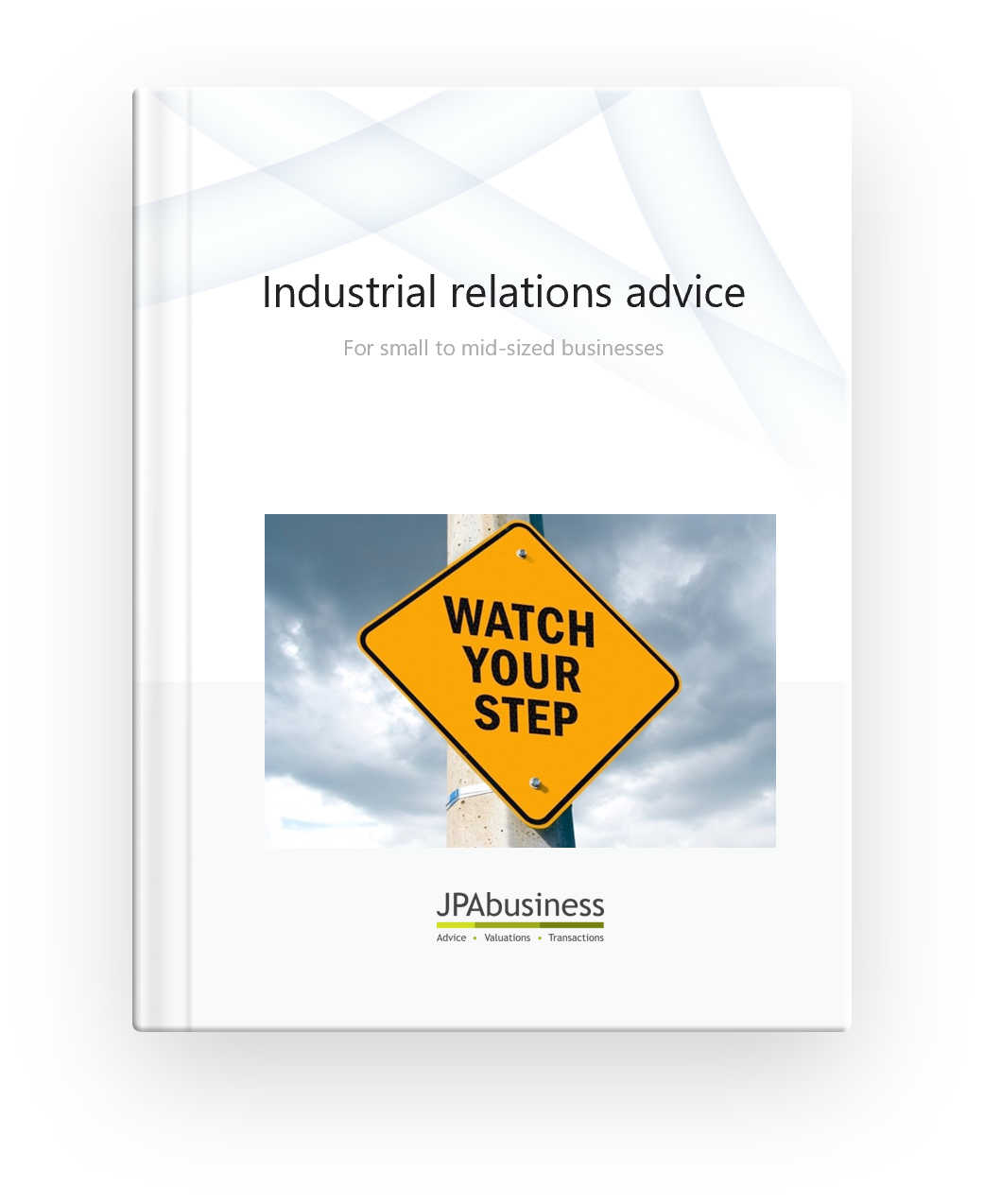
In our ebook, Industrial relations advice for small to mid-sized businesses, we asked industrial relations consultant Dan Houlihan: ‘How can I avoid employment and staff disputes?’
Dan’s answer: 'You can’t – all you can do is be prepared.'
The following is Dan’s advice, in a little more detail.
DAN: Proper preparation means having structures in place:
- Be clear in all your dealings with employees;
- Be clear in terms of your expectations and the rewards on offer;
- Impose standards and communicate them to employees;
- Provide regular feedback and review of performance and expectations.
The courts will back you 100% in terms of an employer ‘giving reasonable instruction’ and requiring compliance to ‘reasonable and lawful directions’.
Those are your rights as an employer.
What is considered a ‘reasonable’ instruction?
In order for your instructions to be reasonable, they’ve got to be comprehensible.
Reasonable means cogent, i.e. clear and logical – I want you to do ‘X’.
Your instructions don’t have to be ‘right’. They can be 100% wrong from a business advisor’s point of view, but it’s your business and you’re entitled to run it as you see fit, so long as you’re ‘reasonable’ in terms of your requests to employees.
Be clear on your expectations
Telling staff “I want you to be more responsive to my clients’ needs” is not an example of a clear instruction, but I hear it from clients all the time.
What does that mean?
- Should the employee sit by the phone and wait for the clients to ring?
- When the client asks for a steep discount on bills, should the employee say ‘yes’?
Having clear expectations means you can actually measure them and it means you can require your employees to meet your standards, maintain them and enforce them.
Providing clarity is a key way to avoid disputes.
Deal with potential issues early
Lots of disputes between employers and employees occur where there has been aggravating behaviour over a period of time.
The classic for me is employees rocking in at 8.35 or 8.40am, when they’re supposed to start work at 8.30am.
Punctuality is a big thing for me and it annoys me when employees waltz in late.
If they want to come and speak to me about changing their start time to 9am because that suits their lifestyle, that’s fine, I’m happy to have that conversation.
What I don’t want to do is sit there for weeks, taking notes about their late arrival times, have a meeting about it, blow up and pull the trigger, when the employee had no idea I was even upset.
If there’s something ticking you off, either performance or conduct related, deal with it early.
If it can be dealt with, it can be fixed.
If you would like advice or support regarding an industrial relations-related issue in your business, or a people or team performance matter, contact the JPAbusiness team on 02 6360 0360 or 02 9893 1803 for a confidential, obligation-free discussion.

